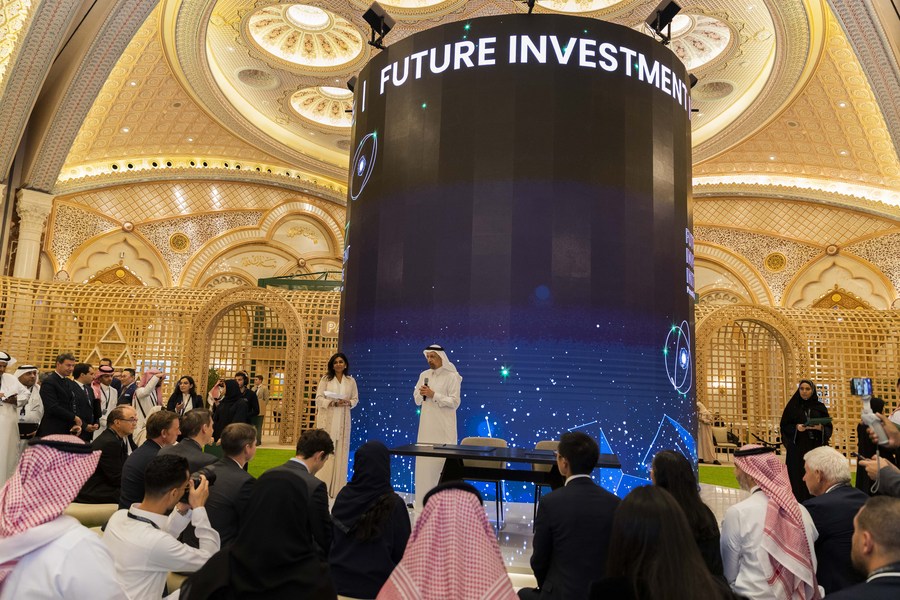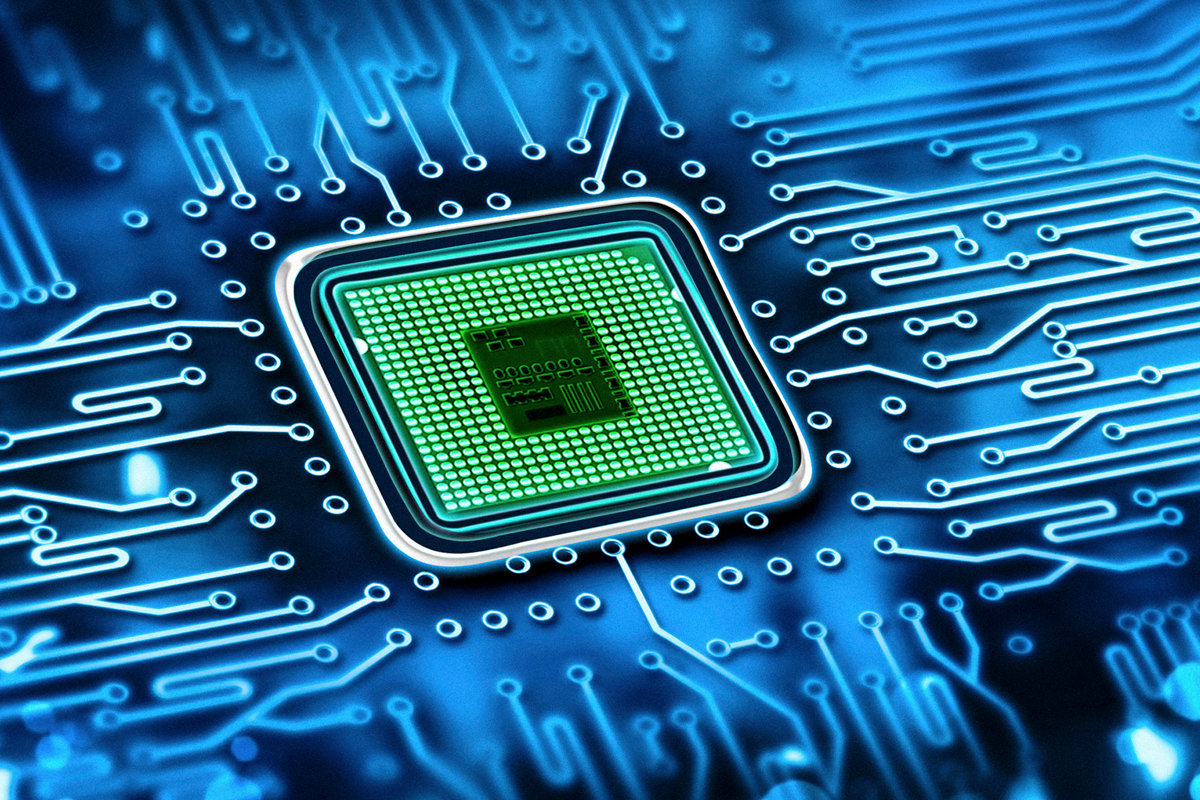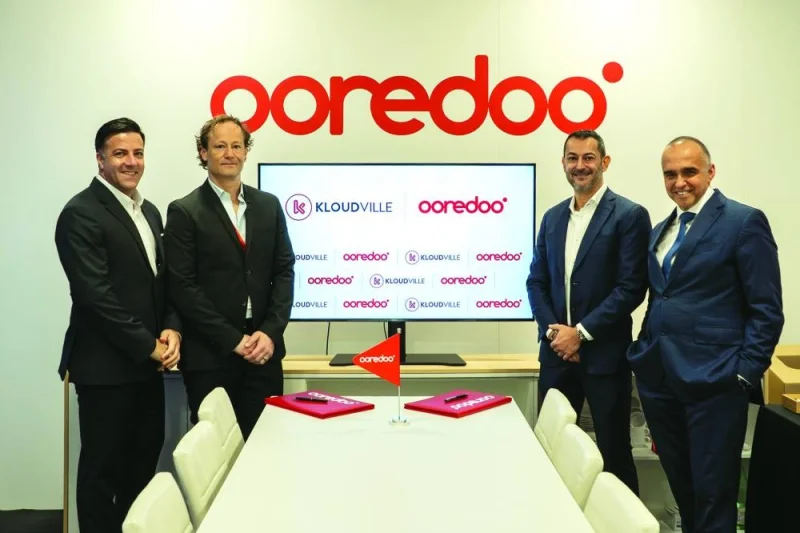Under the patronage of Custodian of the Two Holy Mosques King Salman bin Abdulaziz Al Saud, the ninth edition of the Future Investment Initiative (FII) Conference opened on Monday at the King Abdulaziz International Conference Center in Riyadh under the theme “The Key to Prosperity”.
The event began with closed sessions where experts exchanged ideas and experiences. Discussions focused on various topics including the role of carbon accounting innovation in measuring corporate climate performance, the potential of cryptocurrency infrastructure to redefine the global financial system, quantum computing and its capacity to generate returns, and strategies for investing in future leadership.
From October 28 to 30, the conference will host a wide range of sessions covering pressing issues such as the impact of AI and robotics on productivity, wealth creation amid growing inequality, the geoeconomic implications of resource scarcity, demographic shifts shaping the future workforce, and strategies for balancing economic growth with environmental sustainability.
Heads of state, sovereign wealth fund representatives, senior executives, and pioneers from technology, energy, healthcare, climate, finance, and culture will engage in high-level discussions aimed at shaping the future of global growth, investment, and human progress.
The conference is expected to draw over 8,000 participants and feature 650 prominent speakers across 250 dialogue sessions, reinforcing Riyadh’s role as a leading global hub that brings together leaders and innovators to turn visionary ideas into actionable strategies that define the future of investment.
Action over rhetoric
Edward Mermelstein, former New York City Commissioner for International Affairs, FII “is far more than a traditional conference. It is where global capital, innovation, and policy intersect. Its distinction lies in action over rhetoric.”
“FII brings together sovereign funds, global CEOs, and policymakers who are focused on execution, building partnerships that move markets and create opportunity across regions,” he stressed.
“What makes it truly unique is Saudi Arabia’s role as a convener,” he explained. “Under Vision 2030, the Kingdom has positioned Riyadh as the hub where developed and emerging economies connect. FII reflects that ambition, advancing discussions on sustainable development, AI integration, and frontier market investment that will define the global economy for decades to come.”
He continued: “I have followed the Initiative’s remarkable evolution and would be honored to contribute in future editions. My work remains closely aligned with its mission of mobilizing global investment toward emerging markets and reconstruction efforts.”
“As New York City’s Commissioner for International Affairs from 2022 to 2025, I had the honor of strengthening the city’s global relationships and advancing foreign investment, technology, and sustainability initiatives,” Mermelstein said. “In that capacity, I visited the Kingdom many times and witnessed firsthand its remarkable transformation and openness to partnership. Today, through Atlantic Bridge Capital, I am focused on mobilizing institutional investment into emerging and frontier markets, with a particular emphasis on reconstruction, resilience, and technology-driven growth.”
“Most recently, at the Kyiv International Economic Forum, I focused on how international partnerships and private capital can help rebuild post-conflict economies. I believe similar frameworks can extend to regions across Africa, Asia, and the Middle East, where Saudi leadership and capital play a defining role in shaping sustainable growth,” he added.
On the Saudi investment environment and its advantages, Mermelstein stated: “Saudi Arabia has established itself as the standard-bearer for emerging market transformation. Vision 2030 has produced a stable, investor-friendly environment supported by strong governance, modern regulation, and clear long-term strategy. The Kingdom’s ability to mobilize capital through the Public Investment Fund and its growing private sector makes it a global magnet for innovation and investment.”
“From my own engagements with Saudi leaders and institutions, I have seen firsthand the depth of ambition and professionalism driving this transformation. Beyond diversifying its own economy, the Kingdom is exporting a model of success that merges strategic planning, technological advancement, and inclusive development,” he told Asharq Al-Awsat.
“Saudi Arabia today stands as the shining example of how visionary leadership and disciplined execution can redefine what is possible for emerging markets around the world.”
What makes FII unique
Sem M. Köksal, Co-founder and Chief Executive Officer, GSL Holding GmbH, told Asharq Al-Awsat that “FII feels like coming home. I’ve been to many conferences around the world. But FII is different. Here, things actually happen.”
He said three things make FII special. “First – the speed. In other places, you discuss ideas for months, maybe years. Here in Riyadh? Three days and it’s done. That is what Vision 2030 means in practice – when this nation decides to do something, it gets done.”
“Second – real partnership,” he said. “I work with Sheikh Abdullah bin Zaid Al-Meleihi, Chairman of Al-Ramez International Group and Saudi Excellence Holding. He is a visionary who understood where technology was heading long before others did.” The partnerships have bolstered work in future technologies and opened doors for communication between Europe and the Kingdom.
“Third – access to decision-makers. At FII, you sit with ministers and the people who actually make decisions. I want to especially thank the Ministry of Investment for their incredible support. They are problem-solvers,” Köksal said.
“FII is not just another conference. It is where the future gets made,” he remarked.
Asked about his participation at FII9, Köksal said: “I bring German engineering excellence and connections to world-leading companies across critical infrastructure. Whether it’s Bosch in hydrogen technology – we were together in NEOM, meeting with the Ministry of Investment and PIF – or Lyten in advanced battery systems, or working with one of the largest US infrastructure funds in the data center space.”
“My focus spans the full spectrum: data centers, complete security solutions, not just cyber but real defense hardware and integrated systems and next-generation energy technology. I work exclusively with global leaders in their fields,” he stressed.
Moreover, he revealed that he will be signing agreements covering three main areas: “Data centers for the AI revolution: Saudi Arabia is building NEOM, The Line – incredible projects that need secure, sovereign data infrastructure.”
“I am working with one of the largest US infrastructure funds in this space, and together with Saudi Excellence, we have concrete plans for Saudi Arabia,” he said. “I can’t go into details yet, but it’s about knowledge transfer, local manufacturing, and real technological sovereignty. We don’t just sell technology – we transfer it. That is what Saudi Arabia wants and deserves. True sovereignty, not just buying from abroad.”
The second area is advanced battery and energy technology. “I am advisor to Lyten – the absolute world leader in lithium-sulfur battery technology from Silicon Valley. Dan Cook, the founder and CEO, is a true visionary. He has built something revolutionary. I have the advisory mandate for Europe, but I am already developing concepts for Saudi Arabia.”
This matters because “energy storage is the new oil,” Köksal explained. “It’s about sovereignty, about powering data centers and about critical infrastructure. AI data centers need massive power and backup. Critical infrastructure needs reliable energy storage. This isn’t just business, it’s strategic.”
“Energy independence is national security. Saudi Arabia has always understood energy better than anyone. Now it’s about the next generation of energy technology. And Lyten is leading that revolution globally,” he stressed.
The third area is defense and critical infrastructure: Beyond cybersecurity. “We are talking complete security solutions. Hardware, defense systems, integrated infrastructure protection. Working with leading European and international partners to develop sovereign capabilities. Sensitive, but crucial for independence. Saudi Arabia is the best place in the world for technology companies right now.”
Furthermore, he described Riyadh as strategic. “The Public Investment Fund, private investors – everyone’s investing in the future. If you have a good plan and the right partners, you find capital that wants to grow with you, not just make a quick return. The location is perfect. From Riyadh, you reach Europe in five hours, Asia in six, Africa in four.”
“Saudi Arabia is the new center. Infrastructure of the future. NEOM is being built right now. The Line is becoming real. These are testbeds for tomorrow’s technology,” Köksal added.
Major deals, solutions to global challenges
Abdullah bin Zaid Al-Mullahi, Chairman of the Saudi Excellence Holding Company, told Asharq Al-Awsat that the launch of FII9 has positioned the Kingdom among the world’s leading countries. “This conference is a cornerstone of the Crown Prince’s Vision 2030, which all Saudis are working to achieve,” he remarked.
“The Kingdom’s support for artificial intelligence projects has been extensive in this field. Major deals and a significant global presence are expected from all over the world. The education and artificial intelligence sectors are a key part of the conference discussion panels,” he noted.
“The launch of the initiative in 2017 marks the Kingdom’s entry as one of the world’s sponsors of global investment conferences. It is working to unify efforts and invest in finding solutions to global challenges that contribute to a positive impact on humanity,” he added.




